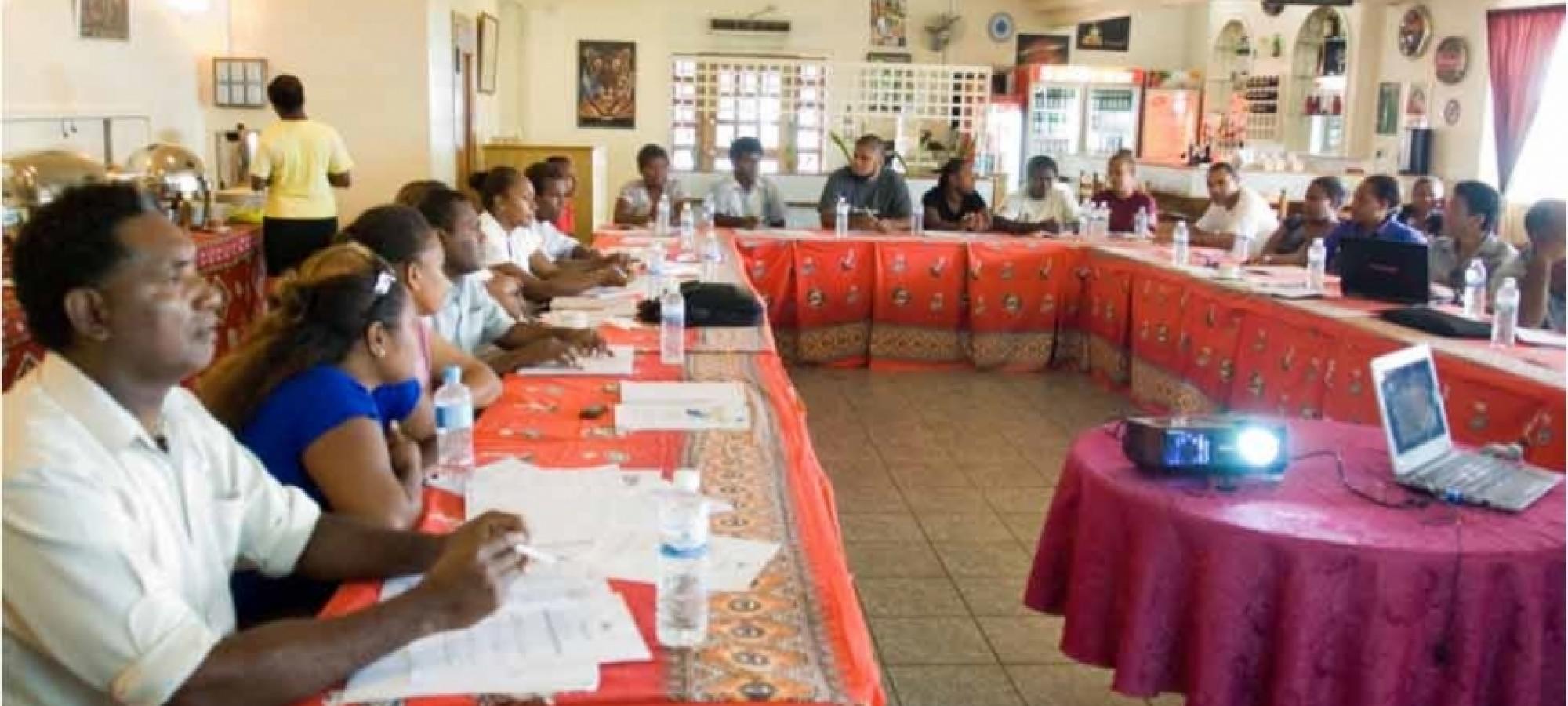
9 May 2012, Secretariat of the Pacific Community (SPC), Honiara, Solomon Islands –
The Solomon Islands Government is making progress towards the introduction of national HIV legislation by holding a consultation to discuss a national HIV policy.
John Gela from the National AIDS Council says a national HIV policy will form the basis for a legislative process later in the year and, if successful, will lead to the introduction of new HIV legislation.
He adds that the Ministry of Health wants to take a proactive approach in dealing with this public health issue before opportunities are missed, 'We would like to strengthen our HIV programme while we still have the low number of cases in Solomon Islands,' he said.
Representatives from the Ministry of Health and stakeholders, including religious and non-governmental organisations, are attending the consultation, which is taking place at the Iron Bottom Sound Hotel in Honiara from 8 to 10 May. The consultation is facilitated by the Secretariat of the Pacific Community (SPC) Regional Rights Resource Team (RRRT).
Gela points to the experience of Papua New Guinea (PNG) where the problem of HIV/AIDS is very serious. 'We are neighbours of Papua New Guinea and we have similar culture, and therefore we need to expand our HIV programme here.'
Gela wants to see this happen before it is too late. 'HIV testing in Solomon Islands is still low and this might be contributing to the low number of cases, so we would like to increase testing. The introduction of HIV legislation will help our HIV programme and the management of HIV cases.'
Lionel Aingimea, a Senior Trainer with SPC RRRT, says it is important that HIV legislation is based on principles of human rights. In recent years, PNG, Fiji and Pohnpei state in the Federated States of Micronesia have introduced human rights-based HIV legislation. This approach is credited with more effectively arresting the spread of the virus by addressing issues of discrimination and stigma faced by sufferers.
'When there is stigma and discrimination against people with HIV and their basic human rights are not respected, then other people don't want to come out and get tested, and then the virus goes underground,' says Aingimea.
If people are afraid to access testing and other medical services, this allows the HIV virus to spread unchecked in the community.
'You need to treat people with HIV with respect and allow them the full realisation of their human rights. It means they can still get jobs for livelihoods for their families and medical attention, the same as other people,' says Aingimea. '
This consultation process is significant because, even though Solomon Islands has only seventeen cases of HIV, the government is now taking steps and making sure they tackle the virus at this early stage. Not only are they protecting their own people but they will also be helping to reduce the spread of the virus across the region and internationally. You need the legislation to be based on human rights.
John Gela explains that the Ministry of Health is calling on stakeholders and provincial HIV coordinators to find out exactly what issues are involved.
'What problems are they encountering in their HIV programmes in their communities and provinces? We want to talk about issues like testing, and cultural and religious barriers, and that's why we invited stakeholders, including the religious-based organisations. We want it to be a wide consultation and to have an inclusive approach.'
In formally opening the consultation, Dr Lester Ross, Permanent Secretary for the Ministry of Health and Medical Services said,
'I understand that some other countries like PNG, Fiji and our friends up in the north have legislation in this regard and the Ministry looks forward to the outcome of your deliberations over the next three days.' Acknowledging the importance of adopting a human rights-based approach Ross said, 'It is important that we ensure the rights of HIV (positive) people.'
For more information please contact:
Sandra Bernklau
Secretariat of the Pacific Community
Programme Manager
Regional Rights Resource Team
[email protected]



